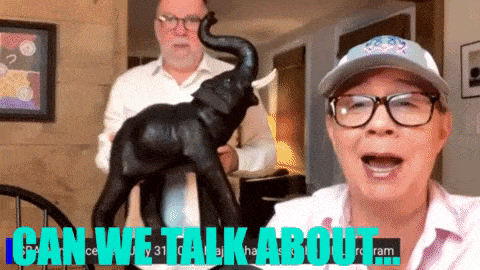- Ithaka
- Posts
- One of the Greatest Adventures You Can Have
One of the Greatest Adventures You Can Have
This personally scares me more than anything else. What about you?

In This Issue:
One of the Greatest Adventures You Can Have
This personally scares me more than almost anything else. But it holds more solutions to more problems than almost anything else.
Tools and Talismans
Get help from Google to fund your non-profit organization
Is Delulu the Solulu?
Getting coached by AI
Feature: One of the Greatest Adventures You Can Have
I’m going to tell you about one of the most adventurous things you can do.
It's going to push out of your comfort zone, test the limits of your fear, generate vast rewards, and lead to tremendous personal growth.
Adventure isn’t always about jumping out of an airplane or onto a freight train, or riding a bicycle across a foreign country. It's not always about surfing, climbing, or doing a triathlon.
I challenge you to attempt this adventurous task: Have a serious and vulnerable conversation with somebody close to you.
Ironically, it's much harder to have a conversation like this with somebody close to you than it is with a stranger.
The way you approach it is by creating a Safe Space as a prerequisite to having this kind of a conversation.
What is a Safe Space?
Lisa Nichols, who's been training people to have challenging conversations for decades, has some guidelines for creating a Safe Space which allows you to have a vulnerable conversation.
You create that safe space by making a few agreements with the people in the conversation.
You say, “I want to tell you something, but I need to have a safe space in order to share it. Can we agree to three things before we talk?”
Ask the person or people for buy-in. This shows them you’re going to talk about something unusual and important. They’re more likely to treat this conversation as unusually important.
These are the Three Agreements:
First, no judgment. You and anyone else in the conversation agree that you're not going to judge people for what they share.
If you think something they said is stupid, just keep it to yourself. Everyone is here for sharing and support, not for correction.
Second, no repercussions.
If somebody divulges a personal secret that they don’t want everyone in the world to know, we all agree to keep our mouths shut.
We’re also not going to bring up what you said later on to win an argument.
What happens in the safe space stays in the safe space. It's the opposite of being arrested: Whatever you say can't and won't be used against you.
I struggled for a long time with the third agreement: unconditional love.
This sounds very woo-woo and fluffy to me. I had a lot of resistance to working with this term, but now I realize what it means.
People we love can do things that might seem wrong or foolish or even mean, but we still love the person.
So, we need to agree that whatever level of love and support you share with the people in the safe space, that's not going to be tempered by what they say.
It's easy to love someone when you agree with what they’re saying, they’re full of confidence, they look and sound good, and everything's cool.
But when someone is being an asshole, that's when they need your love the most.
Master the Art of Uncomfortable Conversations
The quality of your life depends on the number of uncomfortable conversations you’re willing to have.
When you’re intentional about creating a Safe Space, you open the way for these uncomfortable conversations.
And that’s when beautiful things can begin to happen.

Tools and Talismans
Google Ad Grants. Are you starting or running a non-profit organization? Get help with funding from Google.
Is Delulu the Solulu? I wouldn’t put it that way, but apparently yes!
Get coached by AI! This free tool lets you choose different “personalities” to bounce thoughts and ideas back and forth. The one I picked asked me some provocative questions about my goals.
